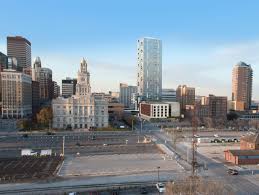Discovering Des Moines: The Heart of Iowa

Introduction
Des Moines, the capital of Iowa, stands as a pivotal city in the American Midwest, known for its robust economy, vibrant culture, and growing demographic diversity. As an emerging hub for both business and recreation, Des Moines has been gaining attention not just from within the state, but from across the nation. The importance of Des Moines is showcased in its expanding urban landscape, with new investments and developments reshaping its identity. This article delves into current events, key developments, and the significance of this dynamic city.
Current Developments in Des Moines
In recent months, Des Moines has witnessed significant growth in various sectors. The downtown area is undergoing a transformation that supports the influx of residents and businesses. Notably, the $112 million development project that includes a mixed-use high-rise is set to redefine the skyline of the city, catering to both residents and tourists alike. This project is particularly vital as it reflects an overarching trend in urbanisation, with more people seeking to live in accessible urban centres.
The technology sector in Des Moines continues to thrive, with companies expanding in the area due to a skilled workforce and lower operational costs compared to other major cities. In October 2023, the state government announced tax incentives aimed at attracting technology start-ups to the region, enhancing Des Moines’ reputation as a tech-friendly locale.
Cultural Vibrancy
Des Moines is known for its cultural institutions and events that reflect the city’s rich heritage and community spirit. The recent Des Moines Arts Festival attracted thousands of visitors and showcased the talent of local artists. Furthermore, the Iowa State Fair, one of the largest in the country, continues to draw massive crowds, further symbolising the cultural significance of the city.
Additionally, Des Moines maintains a strong commitment to public parks and recreational spaces. Plans to enhance these areas with new facilities are in the pipeline, promoting community engagement and outdoor activities.
Conclusion
As Des Moines continues to evolve, it presents a promising future filled with economic opportunities and cultural vibrancy. With ongoing developments, city officials and residents alike anticipate a more integrated and connected urban experience. Challenges remain, notably in infrastructure and housing, but the city’s proactive approach suggests a forward-thinking strategy. The growing interest in Des Moines from both residents and businesses signifies a bright future, making it not just a place in Iowa, but a notable city on the national stage. Readers can keep an eye on Des Moines, as the city’s transformation could serve as a model for other urban centres across America.
